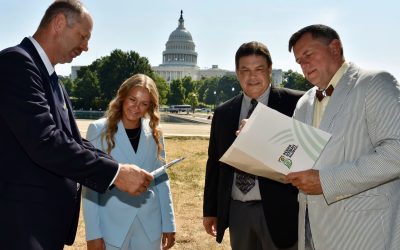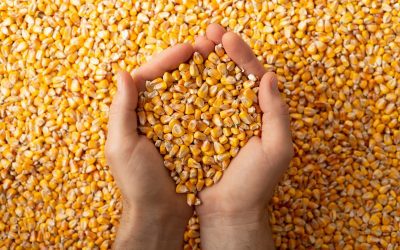Sen. Young: Reliable trade policy a necessity to Hoosier agriculture
Posted: May 18, 2024
Category:
ICGA, Indiana Corn and Soybean Post - May 2024, ISA, Membership and Policy, News
By U.S. Sen. Todd Young
Republican, Indiana

Hoosier farmers and producers are critical to our state’s economy and culture. Indiana is home to more than 94,000 farmers and 53,000 farms. Approximately 94 percent of Hoosier farms are family-owned.
One of my top legislative priorities in the Senate is advocating for trade policies that benefit Indiana’s agriculture community and support Hoosier farmers. Our trade policies should establish a level playing field for farmers and ensure their ability to compete in the global marketplace.
While strong trade agreements help Indiana agriculture, tariffs do the opposite. Although these measures can serve as crucial tools to protect specific American industries from foreign competition, they rarely help our farm community.
Tariffs implemented in 2018 are a good example. Contrary to expectations, these tariffs did not reroute U.S. agriculture to alternative markets, but instead led to a decline in farm exports and regional agricultural employment. Retaliatory tariffs, particularly from China and the European Union, severely impacted many exports, including soybeans, corn, pork and beef.
According to the USDA, international retaliation caused a revenue loss of $25.7 billion between 2018 and 2019. Fortunately, recovery followed the 2020 U.S.-China trade agreement and the COVID pandemic, with three of the highest years for American farm exports occurring from 2021 to 2023. However, in three of the last five years, imports have exceeded exports, shifting the trend in the U.S. agricultural trade balance.
For decades, the United States actively worked to increase market access for exporting American food and agricultural products, preserving a surplus in its trade balance until fiscal year (FY) 2019. This was accomplished through negotiations of free trade agreements, removal of technical barriers to trade, and holding our trading partners accountable to their commitments – all of which have helped strengthen our agriculture economy at home and developed important strategic relationships abroad.
Recently, this progress has stopped. In the last fiscal year alone, U.S. agricultural exports declined by more than $17 billion. With a further decline anticipated for FY 2024, the U.S. agricultural trade deficit is projected to reach a record $30.5 billion. This decline is unsustainable.
In March, I joined with a bipartisan group of senators to urge the Biden administration to immediately take action that would improve the competitiveness of U.S. agricultural products abroad. On trade issues, too often the Biden administration lacks a coherent strategy, engaging in unenforceable trade dialogues and bypassing congressional authority and directives on trade matters.
A continued decline in U.S. agricultural exports is avoidable and unacceptable, and I will push this and any future administrations to prioritize the competitiveness of U.S. agricultural products abroad.
As these discussions about trade policy continue, I welcome your feedback. Thank you for all of your work to feed our communities and drive the Hoosier economy.



